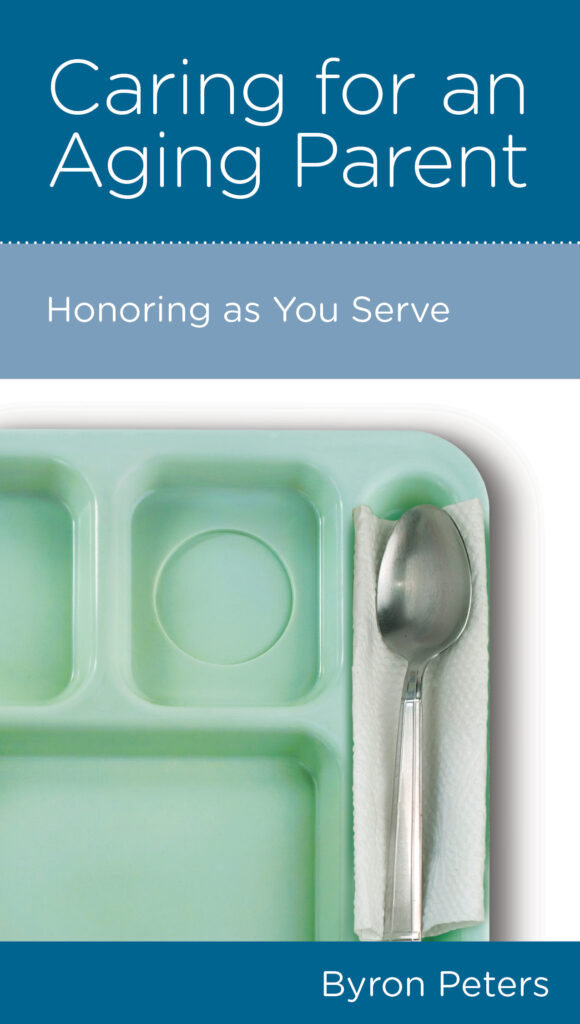My thirty-three-year-old son recently said to me, “Dad, a tsunami is coming and none of us is ready for it.” He was referring to the massive numbers of people growing old and living longer worldwide and the deer-in-the-headlights feeling he and his friends are experiencing as they see their parents age. “Here’s where the problem is,” he said. “My generation and younger have grown up being told that we don’t need anyone. We have little experience with true person-to-person community and little interest in getting our hands dirty in serving our families.”
But then he pivoted in a way I didn’t expect: “But this is actually a great redemptive moment. We have the opportunity to find the very things we lack and secretly long for—service to others, true community, and deepened personal relationships—by learning to serve our parents as they age.”
Preparing to Care for Aging Parents
Reflecting on my son’s insight, I realized afresh that caring for my mother during her Alzheimer’s years was God’s gift to me in ways that I could never have imagined. I had opportunities to serve, was befriended and discipled by a lovely elderly woman at the nursing home, and rejoiced as our children grew in patience and gentleness.
How can we as Christians faithfully prepare for the impending reality of aging parents in a way that honors the Lord and recognizes the redemptive opportunities?
Understanding a few simple principles can be extremely helpful.
1. There is no perfect formula, but there is biblical wisdom.
Every situation is different. Some parents age with wonderful health and live full lives until they die peacefully in their sleep. Others face mountains of physical, financial, spiritual, and emotional challenges for years on end. Your parents’ situation might vary entirely from another’s.
But no matter the circumstances, the Bible is thick with application when it comes to caring well for those who can no longer care for themselves. Likewise, God is up to something good in the lives of caregivers. Psalm 28 gives us language to better understand our Father’s heart toward those who may be overwhelmed, exhausted, or confused about how to best help. He hears. We trust. He helps. We rejoice and worship. This is exactly the pattern Psalm 28 gives us.
Praise be to the Lord,
for he has heard my cry for mercy.
The Lord is my strength and my shield;
my heart trusts in him, and he helps me.
My heart leaps for joy,
and with my song I praise him. (NIV)
As we begin to get our heads and hearts around what may be an enormously complex situation of caregiving, we can expectantly open God’s Word and trust the Lord to supply what we need. His wisdom is more than adequate for the challenge.
2. Prayerfully initiate “The Conversation.”
Caring for parents is not a one-way street. It is a journey where the family learns to walk together and talk about things that they may never have really considered before.
Many children stroll in, announce the verdict (“It’s time we sold this house!”) and then go back to their busy lives, leaving their parents confused and saddened. Others never broach the topic, and moms and dads never get the opportunity to process with their children the major decisions surrounding housing, finances, health, and community.
But what if we could begin gently opening up this important conversation with loving questions that invite our parents into a loving dialogue on topics they are probably keen to answer?
3. See the redemptive opportunity.
Like my son pointed out, this seeming tsunami, this “terrifying prospect” of having to move away from a self-referential life to honor aging parents is actually a gift. Caring for a parent may well be God’s way of answering prayers you may have been praying for a long time: “Lord, make me patient. Give me a servant’s heart. Gentle me. Rebuild my relationship with Mom and Dad. Help my kids grow as kind, faithful, diligent, and others-centered disciples of Jesus. Make me like Christ.”
Who knows? Maybe you’re a simple phone call, a visit, or a conversation away from the redemptive opportunity of a lifetime!

CARING FOR AN AGING PARENT: HONORING AS YOU SERVE
Caring for aging parents is complex and challenging even under the best of circumstances. How do we help them and remain sane when distance, dementia, depression, disaster, divorce, disintegrated relationships, deteriorating health, and discouragement set in?





